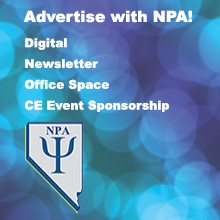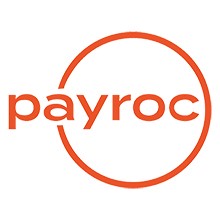|
THE NEVADA PSYCHOLOGICAL ASSOCIATION PRESENTS
Treating Disruptive Behavior: The Basics of Parent Training
Presented by Michelle Grimes, Ph.D.
3 Homestudy CE Credits
 Approved for Nevada Psychologists, LCSWs and MFTs. Approved for Nevada Psychologists, LCSWs and MFTs.
NPA is approved by the American Psychological Association to sponsor continuing education for psychologists. NPA maintains responsibility for this program and its content.
About the Workshop:
Disruptive behavior in childhood is a common outpatient referral. Behavioral parent training is a well-established evidence-based treatment. This pre-recorded presentation provides theoretical background, identifying evidence-based programs, and reviewing core elements across behavioral parent training programs.
Learning Objectives:
At the end of this pre-recorded presentation, attendees will be able to:
1. Identify DSM Criteria of Oppositional Defiant Disorder.
2. Describe Patterson's Coercive Cycle and how it relates to disruptive behavior.
3. Recognize the core components of empirically supported treatment protocols for behavioral parent training.
4. Describe an example of cultural considerations in Behavioral Parent-Training
5. Gain awareness of available resources to gain further clinical training.
Audience:
This presentation is intended for psychologists, other licensed mental health providers, and graduate students of psychology. Level of learning is Intermediate.
About the Speaker:
Michelle Grimes, Ph.D.is an Associate Professor at Southern Utah University. She teaches in the undergraduate psychology program as well as in the doctoral program in clinical psychology. As a board-certified child and adolescent psychologist, Dr. Grimes works with youth with disruptive behaviors, ADHD, anxiety, and obsessive-compulsive disorder. Her research interests center on disruptive behavior in children.
Registration Fees:
NPA members: $75.00
Non-members: $105.00
Student members: $30.00
Student non-members: $60.00
References:
American Psychiatric Association (2022). Diagnostic and Statistical Manual of Mental Disorders (5th ed., text rev.). Washington DC: American Psychiatric Publishing.
Craig, J. T., Moore, C. C., Barnett, E. R., Knight, E., Sanders, M. T., Lafko Breslend, N., Haskell, H. G., & Jankowski, M. K. (2024). The feasibility and acceptability of delivering brief telehealth behavioral parent training in pediatric primary care. Journal of Child and Family Studies, 33(6), 1768–1786. https://doi-org.proxy.li.suu.edu:2443/10.1007/s10826-024-02860-9
Kaminski, J. W., Claussen, A. H., Sims, R. S., & Bhupalam, S. (2024). Evidence-based psychosocial treatments for disruptive behaviors in children: Update. Journal of Clinical Child and Adolescent Psychology. https://doi-org.proxy.li.suu.edu:2443/10.1080/15374416.2024.2405988
Gibson, K., Motzenbecker, T., Harvey, C., Han, R., & McNeil, C. B. (2021). Parent-child interaction therapy (PCIT) adapted for older children: A Research Development Manual.
Forehand, R. L., Jones, D. J., & Long, N. (2024). Parenting the strong-willed child: The clinically proven Five-week program for parents of two- to six-year-olds. McGraw-Hill.
General Information:
Access to Webinar/Handout Materials:
This is a 3-hour pre-recorded presentation for homestudy CE credit. Electronic copy of handout materials will be sent out by email to attendee after registration is completed along with link(s) to view pre-recorded live, virtual webinar
Refunds & Grievance Policy:
Participants may direct questions or grievances to NPA at (888) 654-0050.
Approval and CE Credit:
The Nevada Psychological Association (NPA) is approved by the American Psychological Association to offer continuing education for psychologists. NPA maintains responsibility for the program and its content.
If you want to receive homestudy CE credit for this pre-recorded presentation, you will need to complete and pass an online Post-Test Questions form. According to APA’s Standards and Criteria for Approval of Sponsors, attendee must score at least 75% accuracy to qualify for CE credit, ensuring that attendee did actually attend and complete the program. Partial credit will not be issued to those that do not score at least 75% on posttest. Attendees are allowed three attempts to complete and pass the online posttest to receive CE credit.
Completion of the evaluation form is appreciated, forms are tabulated and reported to our CE Committee for discussion, analysis of participants’ satisfaction with content, instructor performance, etc.
CE certificate will be issued via email within 72 hours of receipt of post test and evaluation form, provided a passing score is obtained
There is no potential conflict of interest and/or commercial support for this program or its presenter.
|






